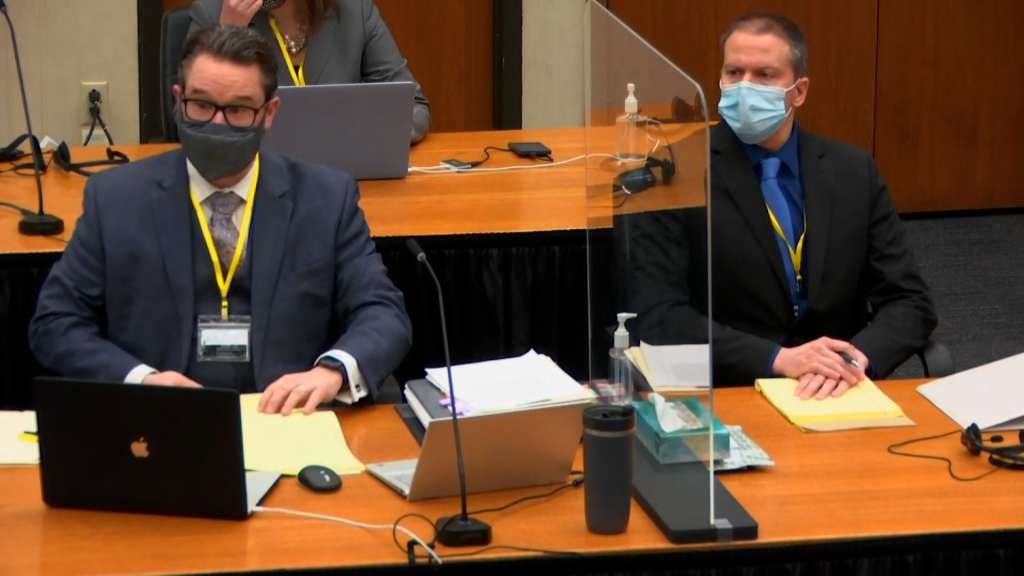(CNN) — Prosecutors in the second week of Derek Chauvin’s trial are set to shift their focus from what happened to George Floyd last May to a closer analysis of what it means legally.
The first week of the trial in Minneapolis centered on a blow-by-blow breakdown of Floyd’s last day, including video from a bevy of cellphones, surveillance cameras and police body cameras; harrowing testimony from bystanders who watched Chauvin kneel on Floyd; descriptions from paramedics and police supervisors who responded to the scene; and Chauvin’s own statements about what happened.
With that groundwork established, the prosecution is expected to now focus on proving Chauvin’s actions that day should be considered murder and manslaughter.
That will require analysis from medical experts who will explain Floyd’s cause of death as well as testimony from police experts who will say that Chauvin used excessive and unnecessary force.
In particular, prosecuting attorney Jerry Blackwell said in opening statements to expect testimony from Minneapolis Police Chief Medaria Arradondo, the Hennepin County medical examiner and a number of forensic pathologists.
Some of that use of force analysis has already entered the trial. On Thursday, Chauvin’s direct supervisor said his use of force should have ended earlier.
“When Mr. Floyd was no longer offering up any resistance to the officers, they could have ended the restraint,” Sgt. David Pleoger said. “It would be reasonable to put a knee on someone’s neck until they were not resisting anymore, but it should stop when they are no longer combative.”
And on Friday, the Minneapolis Police Department’s top homicide detective testified that kneeling on Floyd’s neck after he had been handcuffed was “totally unnecessary,” saying that “if your knee is on someone’s neck — that could kill them.”
Chauvin, 45, has pleaded not guilty to second-degree murder, third-degree murder and third-degree manslaughter.
Defense attorney Eric Nelson has argued that Floyd died of a drug overdose and other preexisting health issues, and he has argued that Chauvin’s actions were within his police training. Nelson has not indicated whether Chauvin will testify in his own defense.
Testimony in the trial began last Monday and is expected to last about a month.
Feelings of guilt and horror in first week of trial
Pain, trauma and regret spilled out from the Minneapolis courtroom last week as a series of bystanders and first-responders spoke about watching Floyd’s last breaths.
In opening statements, jurors heard for the first time that Chauvin actually knelt on Floyd for 9 minutes and 29 seconds — not the 8 minutes 46 seconds that had became a symbol and rallying cry of a worldwide protest movement against police brutality.
Blackwell said Chauvin knelt for 4 minutes and 45 seconds as Floyd cried out for help, 53 seconds as he flailed due to seizures, and 3 minutes and 51 seconds as Floyd was non-responsive. He only let up on Floyd’s neck when a paramedic motioned for him to get off.
The bystanders who watched the incident described feelings of horror and guilt on the stand. The teenager who took the widely known bystander video testified that she had lost sleep at night, wondering what she could have done differently.
“It’s been nights I’ve stayed up apologizing to George Floyd for not doing more and not physically interacting and not saving his life. But it’s not what I should have done, it’s what he should have done,” Darnella Frazier said, referring to Chauvin.
Frazier was walking with a 9-year-old girl to the Cup Foods convenience store at the time of the arrest.
“I was sad and kind of mad,” the girl testified. “Because it felt like he was stopping his breathing, and it was kind of like hurting him.”
An off-duty firefighter who came upon the scene said she tried to offer help, but the officers rebuffed her.
“I tried calm reasoning, I tried to be assertive, I pled and was desperate,” said Genevieve Hansen. “I was desperate to give help.”
Christopher Martin, the 19-year-old cashier who suspected Floyd had handed him a counterfeit $20 bill before the police were called, echoed the regret of other witnesses.
“If I would have just not taken the bill, this could have been avoided,” he said.
The-CNN-Wire
™ & © 2021 Cable News Network, Inc., a WarnerMedia Company. All rights reserved.

